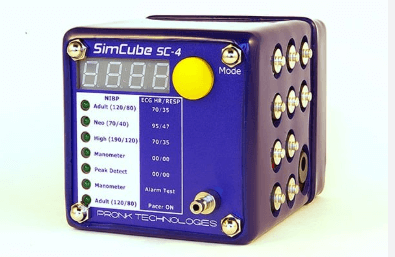How Pronk Technologies Builds Rugged Devices for Demanding Environments

Introduction
Biomedical engineers don’t work in perfect labs. They work in crowded hospitals, travel between departments, and often juggle dozens of preventive maintenance checks in a single shift. Test equipment must survive constant transport, drops, and spills. Ruggedness is not optional — it’s critical.
This blog explores how Pronk Technologies designs rugged, portable tools like the Pressure MAX Digital Pressure Meter and FlowTrax® Infusion Pump Analyzer, ensuring reliability even in tough environments.
Why Ruggedness Matters
- Real Hospital Conditions – Accidental drops, bumps, and spills are common.
- Cost of Failure – A damaged device can delay testing and jeopardize compliance.
- Return on Investment – Rugged devices last longer, reducing replacement costs.
How Pronk Engineers Ruggedness
- Drop Tests: Pressure MAX survives 50 drops from three feet.
- Compact Form Factors: Smaller tools are less likely to be damaged in transit.
- Sealed Enclosures: Resist dust, dirt, and spills.
Examples of Rugged Devices
- Pressure MAX: Pocket-sized, drop-tested digital pressure meter.
- FlowTrax®: Precise infusion pump analyzer built for field portability.
- SimCube® NIBP Simulator: A durable 3-inch cube for quick, reliable BP simulation.
Case Example: Rural Hospitals in Hawaii
Biomedical engineers servicing rural hospitals needed portable yet rugged tools for travel across islands. Pressure MAX and FlowTrax® proved reliable despite frequent transport and challenging conditions.
FAQ
Q: Does ruggedness compromise accuracy?
A: No. Devices are both rugged and IEC-compliant.
Q: Do rugged devices cost more?
A: Not necessarily. Long-term savings from fewer replacements offset any premium.
Conclusion
Pronk Technologies proves rugged doesn’t mean bulky. Devices like Pressure MAX and FlowTrax® deliver accuracy and durability, keeping biomedical teams confident even in the most demanding environments.




